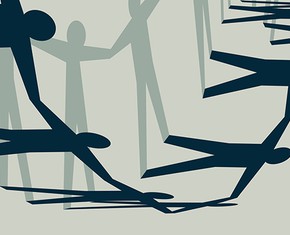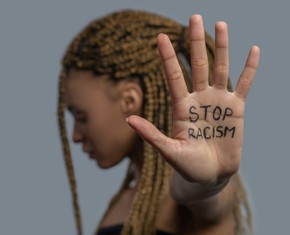The views expressed in our content reflect individual perspectives and do not represent the authoritative views of the Baha'i Faith.
In three centuries – from the 19th to the 21st – the Earth’s population will have grown from one billion to 11 billion. That exponential growth, says Countdown author Alan Weisman, will usher in a reckoning:
Whether we accept it or not, this will likely be the century that determines what the optimal human population is for our planet. It will come about in one of two ways: Either we decide to manage our own numbers, to avoid a collision of every line on civilization’s graph — or nature will do it for us, in the form of famines, thirst, climate chaos, crashing ecosystems, opportunistic disease, and wars over dwindling resources that finally cut us down to size.
RELATED: Eight Billion People on Earth in 2022
Today, as we approach the 8 billion world population milestone we’re on track, as a species, to overrun the Earth’s ability to continue supporting us. This raises the specter of ecological collapse and the consequent rapid mortality of millions of people. However, some forward-thinking experts have begun to question these kinds of purely quantitative, solely numbers-based assumptions, and contemplate a more nuanced, qualitative answer.
Paul Hanley, the Baha’i author of the recent book on the world’s population explosion titled Eleven, believes as the Baha’i teachings do that dealing with overpopulation requires an ethical revolution, one that will wholly transform humankind, reshaping its inner life and external conditions. Hanley puts it this way:
It’s not how many but what kind of people — an 11 billion world peopled by rampant consumers has no future. A world peopled with morally-advanced individuals … would be a good world to live in.
Environmental journalist and author Hanley writes that the world’s rapidly-approaching population boom requires a fundamental change in the way humanity relates to the planet and to each other:
Eleven billion people will populate this marvelous planet by the end of this century. Adding almost 4 billion to an already overburdened world will force everyone to change everything. The sweeping changes that make an 11 billion-world work will wholly transform humankind, reshaping its inner life and external conditions. This process will result in the emergence of a new culture, a new agriculture, and ultimately a new human race.
This remarkable, out-of-the-box idea — that it’s not the quantity of the population, but the population’s spiritual qualities that matter most — casts humanity’s exponential growth curve in an entirely different light.
Today we have a world of almost 8 billion people, and virtually every expert agrees that we’re using the Earth’s resources at an unsustainable rate. In the wealthiest places, we’ve become hyper-consumers, prodigious and profligate users of land, raw materials, water, energy and everything else. That immoderate over-usage has befouled our atmosphere, our waterways and our soil.
RELATED: The Scientific – and Religious – Solutions to Overpopulation
In the poorest places, at least a billion of us don’t have enough to eat. In order for the world to survive, the writings of Baha’u’llah say, this basic global imbalance, the disunity it stems from, and the injustice it fosters all have to stop. That will require unity of purpose and action:
The fundamental purpose animating the Faith of God and His Religion is to safeguard the interests and promote the unity of the human race, and to foster the spirit of love and fellowship amongst men … Our hope is that the world’s religious leaders and the rulers thereof will unitedly arise for the reformation of this age and the rehabilitation of its fortunes. Let them, after meditating on its needs, take counsel together and, through anxious and full deliberation, administer to a diseased and sorely-afflicted world the remedy it requireth …. It is incumbent upon them who are in authority to exercise moderation in all things. Whatsoever passeth beyond the limits of moderation will cease to exert a beneficial influence ….
Please God, the peoples of the world may be led, as the result of the high endeavors exerted by their rulers and the wise and learned amongst men, to recognize their best interests. How long will humanity persist in its waywardness? How long will injustice continue? How long is chaos and confusion to reign amongst men? How long will discord agitate the face of society?…
The winds of despair are, alas, blowing from every direction, and the strife that divideth and afflicteth the human race is daily increasing. The signs of impending convulsions and chaos can now be discerned, inasmuch as the prevailing order appeareth to be lamentably defective. I beseech God, exalted be His glory, that He may graciously awaken the peoples of the earth, may grant that the end of their conduct may be profitable unto them, and aid them to accomplish that which beseemeth their station.
If we began, as a united world, to follow Baha’u’llah’s wise counsel, working to unify and change the world’s “lamentably defective” order, what could we accomplish? What if we administered the Baha’i remedy of exercising “moderation in all things,” especially where it concerns the number of people on the planet? What if we could discover the best possible birth control, and provide it to everyone?
In the next essay in this series, we’ll explore those crucial questions, and see if we can find the answers in one very unexpected place.
















Comments
Sign in or create an account
Continue with Googleor